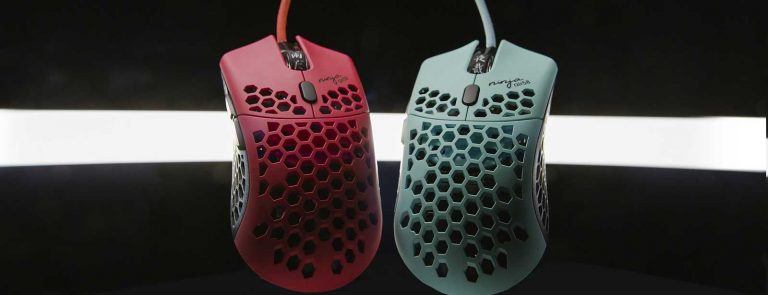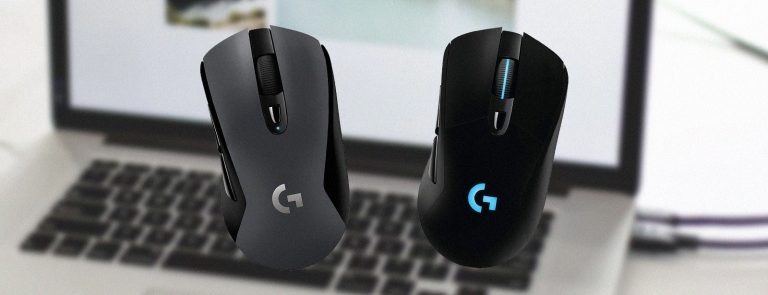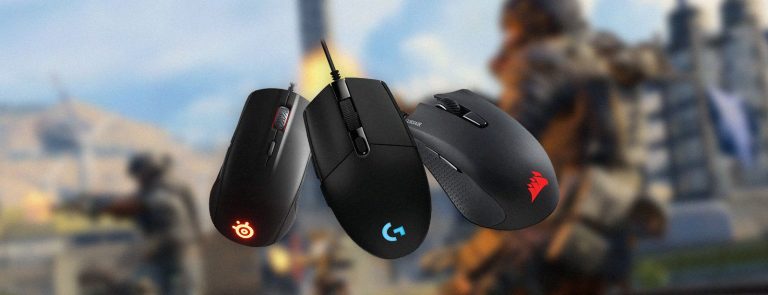What the Difference Between Wired and Wireless Gaming Mice?
Wired mice provide better speed, accuracy, and overall reliability; you can’t really go wrong with wired gaming mice. The wireless mice will give you (very) small delay while usually using Bluetooth or a wireless dongle, not ideal for a competitive gamer. Additionally, you will periodically have to charge the mouse between games. However, if you want a clean and mobile setup, wireless is the way to go.
Of all the gaming peripherals that you can get your hands on, the mouse is easily the most important one of them all.
Gaming headsets do help improve the level of immersion, and gaming keyboards help minimize instances of messing up your inputs, but it’s ultimately the accuracy and precision needed to pull off game-winning moves where upgrading from a regular mouse to a gaming mouse produces the most noticeable results.
Which of the two is better for gaming? Let’s take a closer look at either option to find out the answer.
Related: Wired vs Wireless Gaming Headset
Wired vs Wireless Gaming Mouse
Despite being the older type of tech, wired gaming mice still has a few key advantages over their wireless counterparts that most gamers wouldn’t want to miss out.

Wired Gaming Mice
As their name implies, wired gaming mice are directly connected to the CPU by a wire. The first mice were wired mice, which also means that the very first gaming mice were also wired. Early wired gaming mice have PS/2 cables (the ones with “round” connectors), but most wired mice today have USB cables.
For the longest time, the main debate concerning gaming mice was choosing between PS/2 and USB mice. Those who prefer the PS/2 gaming mice argued that PS/2 connectors offered better response times compared to their USB counterparts. They can be used when troubleshooting a computer, especially if the operating system is unable to load the necessary drivers to activate the USB connectors.
On the other hand, gamers who prefer USB gaming mice say that USB wires are more convenient since they can easily be “hotswapped” (connected or disconnected) without worrying about causing the computer to crash. Furthermore, advances in USB technology have also cut down response times to the point that they are barely discernible from PS/2 mice response times.
Wireless Gaming Mice
Wireless mice are connected to the computer by some form of wireless technology. RF wireless mice use RF signals which are transmitted from the mouse to a receiver directly connected to the computer, while Bluetooth mice use Bluetooth technology to hook up to a compatible CPU either thru a Bluetooth receiver or a similar device already integrated into the computer’s motherboard. Check our comparison of the G900 vs G903 for some a great wireless gaming mouse.
The third and most popular type of wireless mice are infrared mice which rely on infrared signals and transmitters to relay input to the computer via a USB receiver.
In order to be able to send signals to the CPU, wireless mice must have their own source of power. Most of today’s wireless gaming mice are powered by standard batteries, while others have built-in rechargeable batteries for extra convenience. When the power runs out, the batteries have to be replaced or recharged before the mouse can be used again.
Better response times
Both PS/2 and USB gaming mice have way better response times than any type of wireless mice. Although the difference could be as little as a few dozen milliseconds, it could be more than enough to decide a game where quick reflexes are very important.
Simple design
Wired mice require very little setup time; just plug them to the CPU and you’re pretty much set for gaming. On the other hand, wireless mice may require certain calibration. In case of Bluetooth mice, you may even have to manually pair the mouse with your CPU before you can use it.
No interference
There are cases when wireless gaming mice stop working properly because of signal interference between the mice and the CPU. In some rare cases, two similar models could end up transmitting inputs to the receiver on the wrong computer! These issues are not as likely to happen as they do back then, but for serious gaming, it could spell trouble in the middle of a heated gaming session.
No limited lifespan
Perhaps the biggest argument against using wireless mice is the fact that they stop working when their batteries run out of juice. Even a wireless mouse with a very powerful battery can run out in the middle of playing, but you can expect a wired mouse to keep working all the time.
Price
Wired mice do not have the components necessary to make them work wirelessly so they tend to be a lot more affordable than wireless mice. A high-end wired mouse will usually cost just around the same price as a mid-range wireless one.
Is Wireless Useless?
- Portability – Some gamers prefer to stick to a specific mouse even when playing on a different machine. A wireless gaming mouse is very portable, making it a more ideal travelling mouse for gaming anywhere (a popular option for those on gaming laptops).
- Organization – Wireless mice do not have anything that could limit the layout of your gaming table. With wired gaming mice, you’ll have to worry about cable management on top of trying to fit a bulky keyboard and somewhere to place your monitor and headphones.
Another important thing when considering gaming mice is the type of games you’re playing. If you’re into games where lightning-fast mouse movements are not that important like in FPS games or turn-based RPGs, the difference between a wired and wireless gaming mouse won’t be that noticeable.
Last but not least, wireless gaming mice have greatly evolved over time. There are now wireless gaming mice that not only provide good enough response times for all but the most demanding twitch shooters, but also enough battery life to last for several days of gaming uninterrupted. For best of both worlds, there are also hybrid gaming mice that give you the option of going wired or wireless depending on your gaming preferences.
The Verdict
You know have a good idea of how either option would benefit you, but which specific gaming mice should you consider getting?
Here are our recommendations for both wired and wireless gaming mice to help you start your search.
Recommended Wired Gaming Mice
Logitech G502 Proteus Spectrum
Great aesthetics, solid build quality, ergonomic feel, and excellent customization through Logitech’s gaming app, the G502 Proteus Spectrum is easily one of the best wired mice you can get your hands on today. What’s even better, it’s reasonably priced as a mid-range option for something many consider one of the best if not THE best gaming mice this year.
SteelSeries Rival 600
The Rival 600 offers even better form and function than the G502, adding a deeper degree of customizability plus the option to adjust the weight of the mouse courtesy of removable internal weights. Despite the bump in quality, you’d be surprised that this high-end gaming mice is just a little more expensive than your typical mid-range option.
Roccat Kova
Sometimes, the basics are more than enough for the typical gamer. The Kova is one of the best entry-level gaming mice we’ve ever had the pleasure of testing out. Although the software could be a bit better, the Kova’s out-of-the-box performance plus its ambidextrous design makes it a good first mouse for new gamers or even a mainstay for left-handed gamers who tend to have limited options.
Recommended Wireless Gaming Mice
Logitech G603
Many would argue that the G603 is one of the best wireless gaming mice out there today, and it’s hard to disagree with them. One of the best things about the G603 is the option to choose between better performance and long-term endurance. The built-in LED light is also a nifty bonus, and makes it worth the price, which is decent for something of this quality.
Mad Catz R.A.T. 9
When it comes to raw customizability, you’ll be hard-pressed to find a better option than the R.A.T. 9. Don’t let the unique look fool you; it’s actually one of the most comfortable wireless gaming mice out there. Use the software to adjust the sensitivity and then use the built-in adjusters to adjust the dimensions of the mouse to have something that will perfectly fit your hand.
E-Blue Mazer II
The E-Blue Mazer II is by no means a high-end contender, but it’s easily one of the best “value for money” options available in the market today. At a relatively cheap price tag, you get what most consider the bare essentials: two side buttons, a switch for four dpi settings, ergonomic palm grip, and some LED. Sure, it doesn’t have a lot of bells and whistles, but it gets the job done at a reasonable price.
That wraps up our take on wired and wireless gaming mice. Do you want to know more about gaming mice? Got a specific model that you’d want to recommend to our readers? Feel free to share your thoughts in the comments section.








